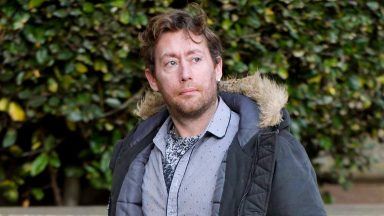A rape survivor has welcomed new legislation to scrap Scotland’s “damaging” not proven verdict being passed – saying the move has given survivors “back their voice”.
Miss M, who has campaigned for the abolition of the controversial verdict alongside Rape Crisis Scotland, welcomed the change at the same time as lawyers warned there could be “increased potential for miscarriages of justice”.
The Law Society of Scotland said it was “disappointed” that “serious concerns” it had were “not reflected in the final legislation approved by MSPs”.
The comments came as Holyrood approved wide-ranging changes to Scotland’s justice system when they passed the Victims, Witnesses and Justice Reform (Scotland) Bill.
As well as scrapping the not proven verdict, the Bill will mean in the future at least two-thirds of jurors will be needed for an accused person to be convicted – instead of a simple majority of the jury at present.
Stuart Munro, convener of the Law Society’s criminal law committee, said they were now “apprehensive for the increased potential for miscarriages of justice as a result of changes not backed by research or experience elsewhere”.
He added: “The fundamental purpose of any criminal justice system is to convict the guilty and acquit the innocent. We’re moving from a system with a proven track record of achieving that outcome to one which is entirely untested and does not exist in any equivalent legal system anywhere in the world.
“The fact that no other jurisdiction operates a three-verdict model is commonly given as a reason for proposing its abolition, but we have significant concerns about following other systems in one respect, but not in terms of the jury majority required for a conviction.
“Every legal system with a two-verdict system requires a unanimous or near unanimous jury to convict, whereas Scotland will now have a system where a person can be convicted despite five members of the jury having significant doubts about their guilt.”
Miss M, who saw a not proven verdict returned against the man accused of raping her in a trial 10 years ago, welcomed the reforms.
She said: “To know that another rape victim isn’t going to experience what I had to go through after my criminal trial ended is the very reason I’ve invested so much time and energy into this campaign.
“Today, the removal of the not proven verdict has given survivors and their families back their voice.
“We have all spoken up about how damaging this verdict is. Today we have been listened to and the improvements to the legal system are going to make it fairer and clearer going forward.”
The woman added: “When I started this campaign to remove the not proven verdict alongside Rape Crisis Scotland, the dream was just not to remove the not proven verdict, but to highlight how misunderstood and damaging it was.”
 PA Media
PA MediaJust under half (48%) of rape and attempted rape cases in 2022-23 resulted in a conviction – with Rape Crisis Scotland noting this was below the overall conviction rate of 88%.
Not proven verdicts were returned in 61% of rape and attempted rape cases that year where the accused was acquitted, compared to an overall rate of 22% for all criminal cases, the charity added.
Rape Crisis Scotland chief executive Sandy Brindley praised Miss M and others who have “campaigned tirelessly to remove the not proven verdict”.
Claiming survivors and others have been “let down by not proven”, she described it as being a “verdict that was impossible to define, confused jurors and the wider public”, and which also “prevented closure for victims”.
Ms Brindley welcomed the creation of a new sexual offences court in the legislation, saying she hoped it will “streamline the management of sexual offences, reduce trauma for survivors of sexual violence, and help cut the unnecessary delays in the court system”
She added while there are “many positive steps” in the Bill, Rape Crisis Scotland has “serious concerns about the increase to the jury majority and the negative effect that this will almost certainly have on rape and sexual offence cases”.
Ms Brindley said: “Conviction rates are already terrifyingly low and many police reports don’t make it to court. Meanwhile, research shows a reluctance to convict rape cases and deep-rooted prejudices around sexual violence affect public attitudes and jury decision-making every day.
“An increased jury majority will undoubtedly make survivors’ fight for justice even harder.”
Follow STV News on WhatsApp
Scan the QR code on your mobile device for all the latest news from around the country


 PA Media
PA Media























